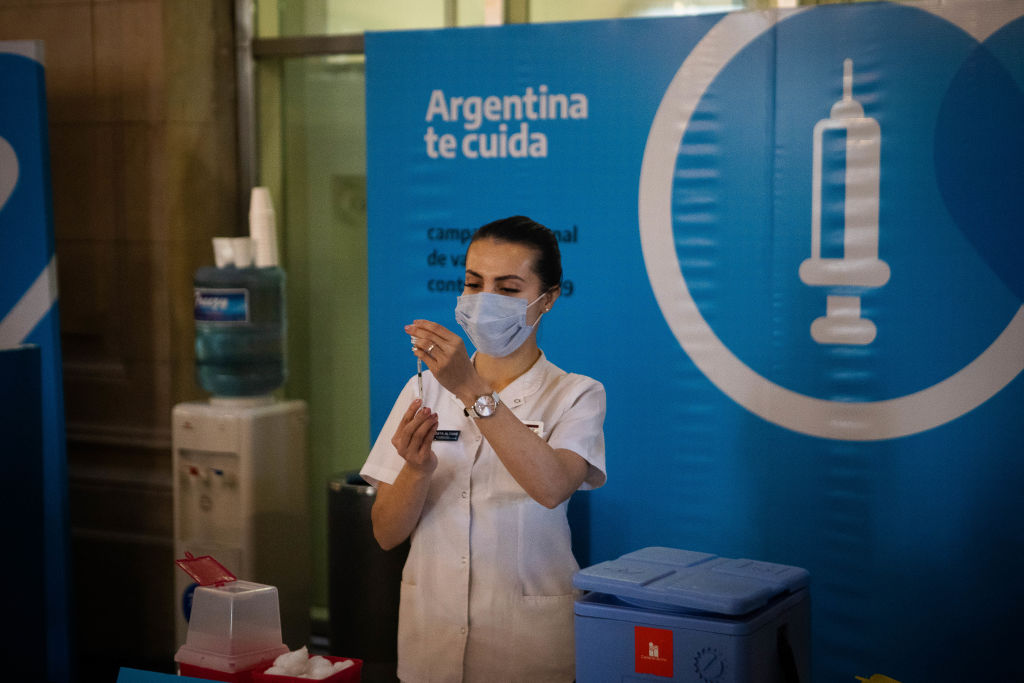
The COVID-19 pandemic will determine the trajectory of the 21st century, but in what direction?
Will it come to be known as a crisis that stalled progress on extreme poverty, inequality and climate change, or one that brought about even greater urgency and global cooperation against these threats?
While it remains too soon to offer definitive answers, our collective actions are drafting responses in real time. Early indications are mixed.
The development of safe and highly effective vaccines in record time is an unmitigated triumph, exceeding even the most optimistic projections.
So far, however, we have failed to match this historic scientific accomplishment when it comes to getting the vaccine where it’s needed, especially as new variants spur outbreaks in places where inoculation rates languish in single digits.
Norway has been at the forefront of global pandemic response since before COVID, having established the Coalition for Epidemic Preparedness Innovations (CEPI) in 2017, a partnership with the Government of India and a number of private, philanthropic, and civil organizations. In June 2020, CEPI joined forces with the World Health Organisation and Gavi, the Vaccine Alliance, to launch COVAX, a worldwide initiative aimed at equitable access to COVID-19 vaccines.
For its part, Global Citizen rallied behind these efforts through VAX LIVE: The Concert to Reunite the World, held in May this year, helping mobilize $302 million and over 26 million doses to the world’s most marginalized communities.
While COVAX and related initiatives to combat the virus have attracted USD $17.8 billion in commitments from government and philanthropic sources, that represents barely more than half of what’s needed to finally bring the worst of the pandemic under control this year.
Unless we summon the requisite political will to bridge this funding gap as a matter of urgency, we will not only fail to tame the pandemic; we risk dividing the world into one of vaccine-haves and have-nots, and put at severe and avoidable risk the entire global development agenda.
The World Bank already estimates the pandemic will drive a further 150 million people into extreme poverty, and the U.N. projects that measures of global human development—a combination of education, health, and living standards—could fall this year for the first time since 1990, when measurements began.
Left unchecked, such trends metastasize into conflict, famine, yet more disease and democratic decline. Lack of vaccines is already part of a mix that fuels protest unrest, in Cuba, South Africa and elsewhere.
Forced to grapple with such outcomes, what chance does the international community have to make progress on inequality, gender equity and climate change, halting and inadequate even before COVID-19 hit?
We can only start to “build back better” once we’ve laid down foundations robust enough to withstand and overcome the confluence of crises we now face. That means, as an immediate next step, vaccines now and vaccines everywhere.
Global Citizen harnesses the activism of over 11 million supporters, mainly younger people, from all imaginable walks of life and corners of the world, who reject the kind of politics that propel vaccine nationalism, or leaders who offer the false comfort of national, partisan or ethnic enclaves.
On September 25th, their voices will be lifted like never before during Global Citizen Live, a 24-hour event to compel the world’s attention to ending COVID-19, overcoming the hunger crisis, resuming learning for all, protecting the planet, and advancing equity for all.
More Must-Reads from TIME
- Cybersecurity Experts Are Sounding the Alarm on DOGE
- Meet the 2025 Women of the Year
- The Harsh Truth About Disability Inclusion
- Why Do More Young Adults Have Cancer?
- Colman Domingo Leads With Radical Love
- How to Get Better at Doing Things Alone
- Michelle Zauner Stares Down the Darkness
Contact us at letters@time.com